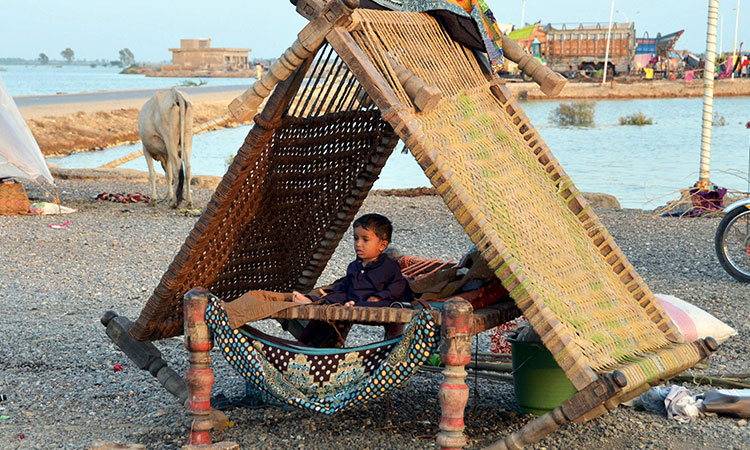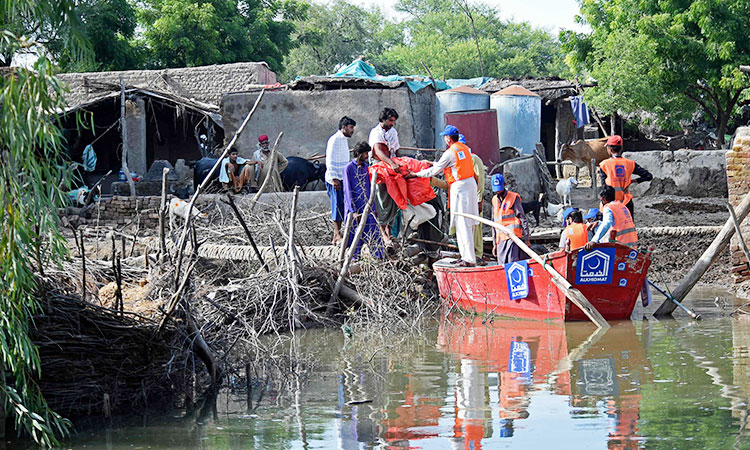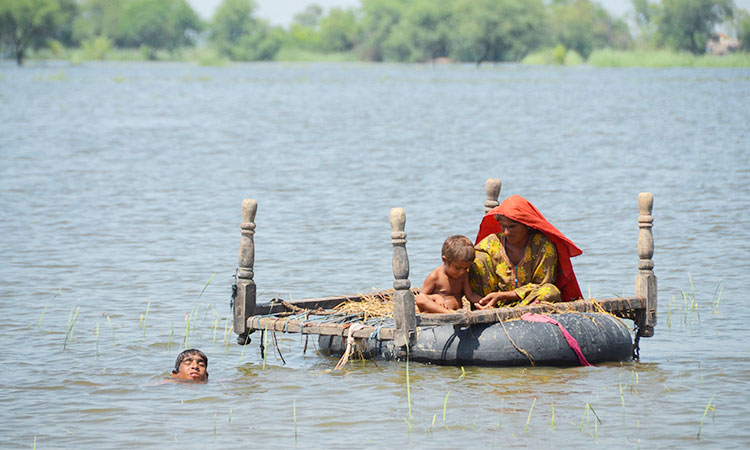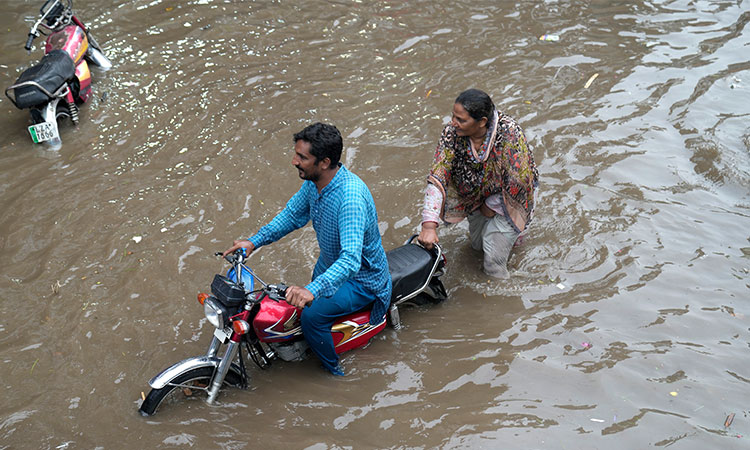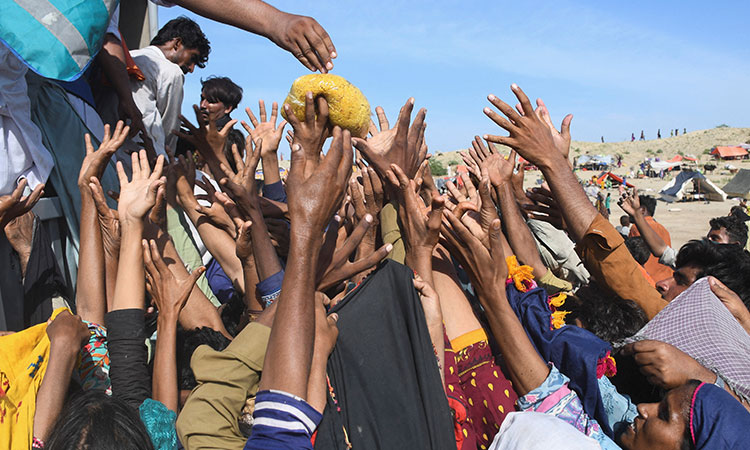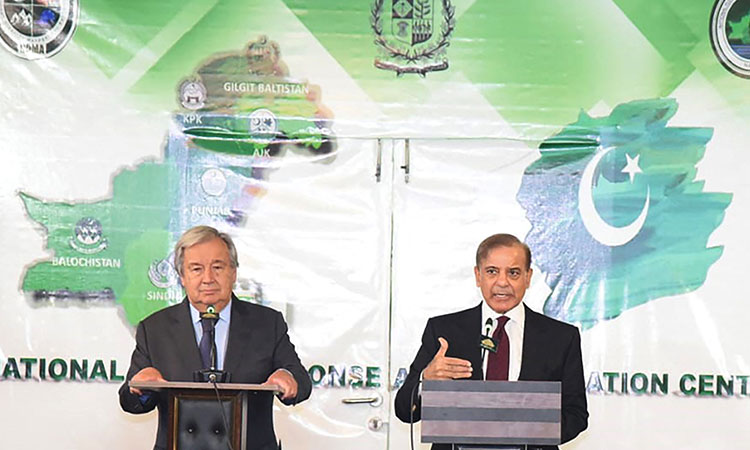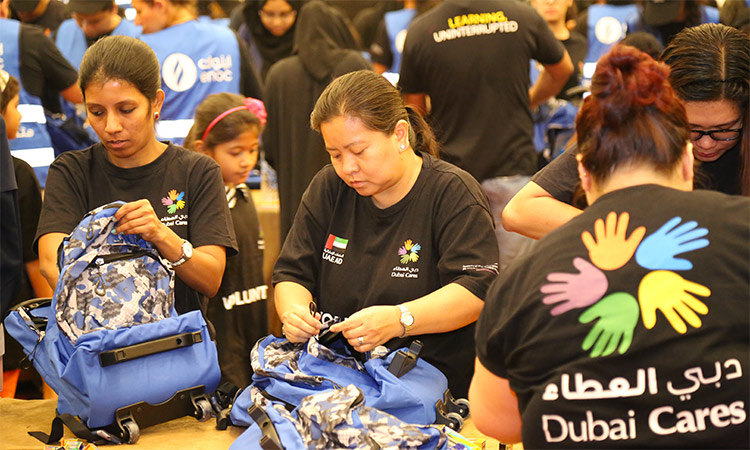Many more children may die in Pakistan after floods, says Unicef

A displaced woman gives a medicine to her son as she fled her flood-hit home in Rajanpur a district of Punjab province on Friday. AP
The toll for children, estimated at 416 by national authorities, represents around a third of the total of 1,208 people killed amid record monsoon rains and melting glaciers in northern mountains.
“There is now a high risk of water-borne, deadly diseases spreading rapidly — diarrhoea, cholera, dengue, malaria,” Unicef Pakistan Representative Abdullah Fadil told a Geneva press briefing. “There is therefore a risk of many more child deaths,” he said.
Record monsoon rains and melting glaciers in northern mountains have triggered floods that have killed at least 1,191 people, including 399 children.
Pakistan’s armed forces rescued a further 2,000 people stranded by rising floodwaters, they said on Friday, while the country’s best-known charity warned that only a small fraction of millions affected by the floods had been reached so far.
Record monsoon rains and melting glaciers in northern mountains brought floods that have killed at least 1,208 people, including 416 children, the National Disaster Management Authority (NDMA) has said.
Planes carrying fresh supplies are surging across a humanitarian air bridge to flood-ravaged Pakistan, officials said, with families and children at special risk of disease and homelessness.
The ninth flight from the UAE and the first from Uzbekistan were the latest to land in Islamabad overnight as a military-backed rescue operation elsewhere in the country reached more of the 3 million people affected by the disaster. The inundation, blamed on climate change, has swamped about a third of the South Asian nation and is still spreading.
“Ninety per cent of people are still awaiting any kind of assistance; the situation is serious, people are starving,” the head of the Edhi Foundation charity, Faisal Edhi, told reporters on Friday.
Edhi, who has spent the last nine days in the flood-hit areas, described the situation as grim and called on the government to lift a years-old ban on some international NGOs it had accused of “anti-state activities.”
“The situation is very bad, and it seems it will worsen,” he said. Pakistan began a crackdown on international NGOs almost a decade ago in Pakistan. By 2018, a number of them had officially been asked to leave on the basis of new and stricter laws.
Eidhi said they should be allowed to return. International NGOs were active on the ground when Pakistan was hit by floods in 2010 and a devastating earthquake in 2005 and played an important role in relief and rehabilitation work. Pakistan is struggling to respond to the floods given their unprecedented magnitude. The government has said 33 million people — 15% of its population — have been affected.
The United Nations has appealed for $160 million to help with what it has called an "unprecedented climate catastrophe". Britain on Thursday pledged $17 million in aid.
"We're on a high alert as water arriving downstream from northern flooding is expected to enter the province over the next few days," Sindh provincial government spokesman Murtaza Wahab told Reuters.
Wahab said a flow of some 600,000 cubic feet (17,000 cu m)per second was expected to swell the Indus, testing its flood defences.
Reuters
